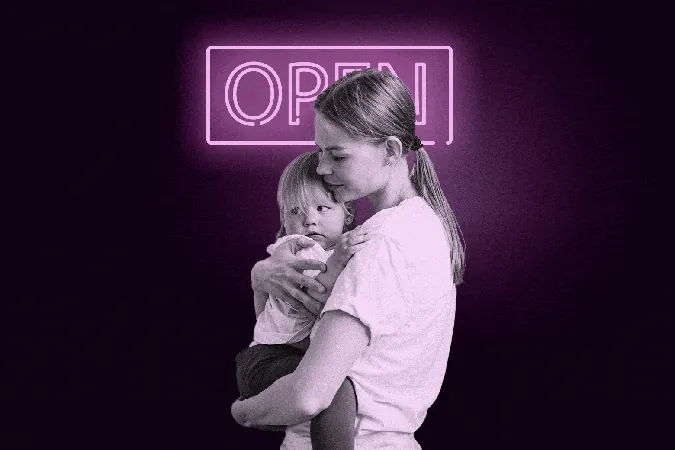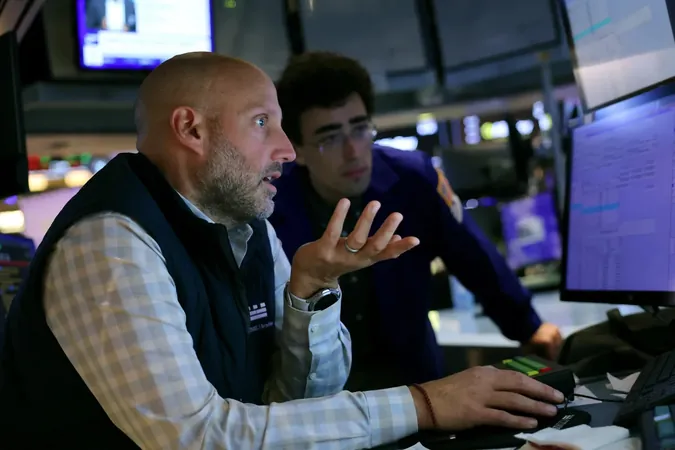
My Husband Proposed an Open Marriage, and It Ruined Our Relationship. Here’s How I’m Healing Through the Pain.
2024-10-10
Author: Ting
The Proposal that Changed Everything
Three years ago, I found myself in the midst of a tumultuous chapter in my life as my husband, whom I had been with for ten years, brought forth an idea that would change everything: he wanted an open marriage. Our relationship had already been faltering. We had relocated overseas for his job, while I was stuck at home juggling a part-time remote job alongside our one-year-old child. The lonesomeness and resentment festered, leading to a significant emotional distance between us—while I yearned for connection, he retreated into hobbies like gaming.
The Unraveling of Our Relationship
Eventually, he approached me about a woman he had met at a work event and suggested an open relationship that would be purely sexual. Initially, I was firm in my rejection, yet he persisted until I reluctantly agreed. Despite my open-mindedness towards ethical nonmonogamy in theory, the reality was harsh. I plunged into a profound mental health crisis, marked by anxiety and depression, which required medical intervention. After several tumultuous months, he ended the liaison, but not without complications, as the other woman had developed feelings for him, dragging us both into an unavoidable whirlwind of awkward encounters in our social circles.
Current Struggles and Emotional Healing
Fast forward to today, we reside in a different country and have undergone couples therapy for a year. Yet, I'm left grappling with the painful memories of betrayal. My husband often implies that my mental health struggles contributed to the breakdown of our relationship and that my consent during those dark times was valid, even as I argue it was coerced. These damaging conversations hang in the air between us, leaving a haunting atmosphere where genuine healing seems elusive.
Navigating Parenthood and Relationship Challenges
We have two young children who love their father, and I find myself longing for the compassionate, loving man I once married. Divorce is something I dread, yet I feel trapped in a relentless cycle of grief, mourning the marriage I thought I had. What truly pains me is that he was more attentive during his affair than he had been in years. Now, as we shuffle between parenting duties and work commitments, shadows of the past seep into our intimacy—each moment is tainted with feelings of repulsion and doubt.
Seeking Healing and Guidance
I recognize a need to revisit therapy, but previous attempts have yielded little fruit. It's a bitter struggle between the desire to move forward and the suffocating weight of resentment. I often wonder: what steps do we need to take for healing, and is reconciliation possible when trust has been so profoundly shattered?
Expert Insights
Jessica Stoya, a sex and relationships writer, emphasizes the importance of individual therapy. She believes that this could offer a space for me to express my feelings and work through the trauma. The reality is that I can't control my husband’s actions, but I can define my boundaries and outline my needs clearly.
Rich Juzwiak adds to this by acknowledging the harmful statements my husband makes about my mental health crisis being 'manipulative.' This level of insensitivity undermines any attempts at healing. A reckoning is necessary. Communication is fundamental, and if he refuses to engage in honest conversations about the past, moving forward will be impossible without sweeping issues under the rug.
Ultimately, the pain of an infidelity—and the additional layer of coerced consent—will require time to address. It might take years of dedicated effort for trust to be meaningfully rebuilt, and until I feel safe and respected in our relationship, lingering memories of betrayal will continue to overshadow our intimacy.
Rich also notes that while my husband may have thrived during the affair, it highlighted an incompatibility in our relationship; I am inherently monogamous, while he may have different needs. This discrepancy is fundamental and could pose a challenge that neither of us knows how to navigate.
Embracing Resilience and Future Possibilities
As I reflect on the turmoil and emotional upheaval I have faced, I remind myself of my resilience. If I determine that walking away is what’s best for my mental health, I possess the capability to create a new life for myself. Navigating this reality won’t be easy, but I believe I’ll emerge stronger, regardless of the outcome.
In this heart-wrenching journey, may I find the clarity to honor my needs and carve a path leading to joy and fulfillment once again.



 Brasil (PT)
Brasil (PT)
 Canada (EN)
Canada (EN)
 Chile (ES)
Chile (ES)
 España (ES)
España (ES)
 France (FR)
France (FR)
 Hong Kong (EN)
Hong Kong (EN)
 Italia (IT)
Italia (IT)
 日本 (JA)
日本 (JA)
 Magyarország (HU)
Magyarország (HU)
 Norge (NO)
Norge (NO)
 Polska (PL)
Polska (PL)
 Schweiz (DE)
Schweiz (DE)
 Singapore (EN)
Singapore (EN)
 Sverige (SV)
Sverige (SV)
 Suomi (FI)
Suomi (FI)
 Türkiye (TR)
Türkiye (TR)